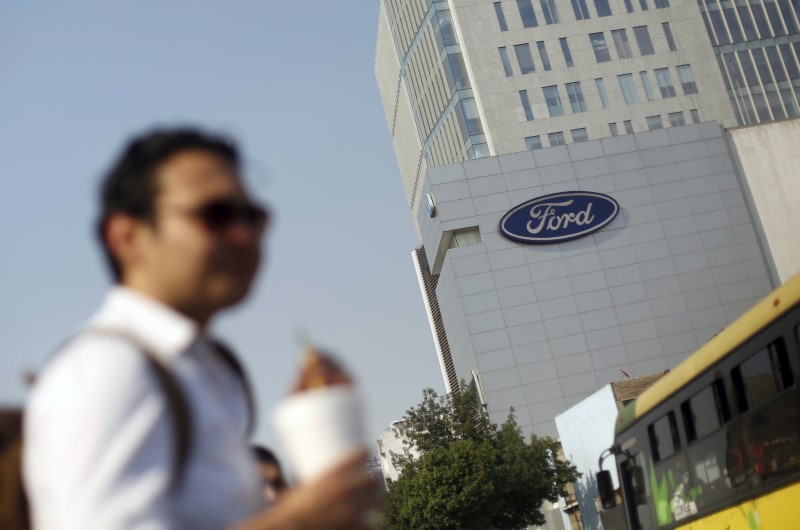BEIJING/SHANGHAI (Reuters) - Ford Motor (NYSE:F) Co and Baidu Inc (NASDAQ:BIDU) launched a two-year project on Wednesday to test self-driving vehicles on Chinese roads, amid a global race by carmakers and internet firms to develop autonomous vehicle technology.
The project will start testing on designated roads in Beijing by the end of this year, and possibly other Chinese cities, the two companies said in a statement.
The vehicles will be capable of operating autonomously in certain conditions by the time the project finishes the development and testing process, they said.
By the end of the test period, the project will reach so-called level 4 technology for autonomous vehicles, or autonomous driving but not in all conditions. It is the second-highest tier after level 5, which describes vehicles that should be capable of navigating roads without any driver input.
Ford and Baidu, China's top search engine operator that is also taking a lead role in self-driving tech in the country, said in June they would develop connected services, artificial intelligence and digital marketing in China.
The U.S. carmaker, which is grappling with slowing China sales, is a founding member of the Apollo Committee, an advisory group for Baidu's Apollo autonomous driving open platform.
China's capital city gave German auto maker Daimler AG (DE:DAIGn) the green light to test self-driving cars on roads in July, making it the first international car maker to be granted such a license in Beijing.
